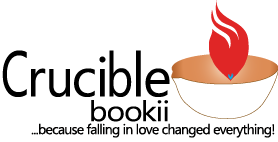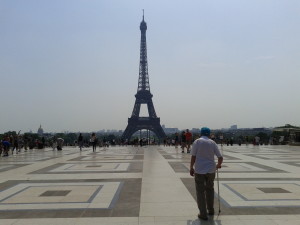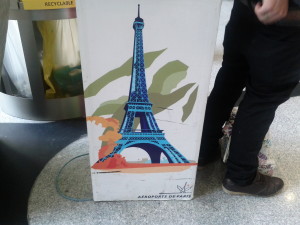France: The Brand
This summer we traveled to France. We spent 3 days around Paris, a week in a medieval village in the south of France called St. Ambroix, and a week in Sancerre. We rented a car and got to drive the highway in one direction and drove through all the smaller roads coming back. We didn’t have a GPS in our rental car and it felt quaint to attempt all that foreign driving with a map and a conversation. We drove through hundreds of roundabouts and our policy was to keep going around until we knew which way to go. We twirled around quite a few traffic circles on our journey.
One of the threads of conversation that wove through this vacation, was the concept of “France–the brand” and how it compared to France–the reality.
In North America, the concept of France and French products act very similarly to an upscale brand. If something is from France, it is guaranteed to be expensive, potentially hand-crafted, and new and cutting edge from a design perspective–innovative. France, the brand products might also center around fairly expensive European style food.
In other cases, the word french is added to something ordinary to make it sound upscale. Some examples of how “French” is used to make a product more upscale would be French roast, French vanilla, French press, French toast, and of course French fries. France has nothing to do with producing coffee, vanilla, fries, or bodum coffee pots, but the word “French” gives them a little something special in their branding. Apparently before it was called “French toast” it was called German toast–apparently in previous centuries the German brand used to be more popular than it is today. Now, French is chic. French lavender is another example. Apparently French lavender is a variety native to Spain–maybe North Americans aren’t the only ones who use the word “French” to make their products more marketable.
We found France, the country to be so different than France, the brand. France, the country, was cheaper. In St. Ambroix we bought bottles of wine for less than $2. The sparkling wine from the grocery store was less than $2–cheaper than the sparkling water. The magnificent old medieval buildings were a bit musty smelling as we walked by. They have different ideas about what food should be refrigerated–eggs are on a non-refrigerated shelf. They have fantastic fruit–peaches and plums and melons which aren’t part of the French brand at all in North America, since fruit doesn’t travel that well. The bread was inexpensive and incredibly delicious.
When we were in Sancerre, I was so excited to go wine tasting in France. It seemed like one of the things I have waited my whole life to do. We went and it was interesting, but this is one of the places that France, the country is different than my idealized version of France, the brand. I picture France’s wine regions to be innovative wine meccas where I could experience an amazing variety of wine. That might be true of France as a whole country, but in terms of diversity of experience when visiting a winery and tasting their wine, one wine appellation is not the place for it, unless you plan to go to multiple regions and taste wine for multiple days. The wine in the appellations is solid and made to stay the same for years. There is very little innovation at all. It is a business built for stability, not innovation. For example, all the wineries in Sancerre grow only Sauvignon Blanc and Pinot Noir grapes. They have 3 terroirs. They have an official in the appellation who tells the farmers when to harvest the grapes. They then harvest the grapes and make the wine in a way that is similar to everyone else. Most of the wine in Sancerre tastes like all the other wine in Sancerre. This lack of innovation and individualism is the biggest departure of France, the country from France, the brand.
So back to this idea of “France–the brand.” Sometimes I see a business that is doing something “off-brand.” It creates a sort of dissonance. For example, if a famous chef were to eat Kraft Dinner or Mac and Cheese publicly or the CEO of a technology company used a ratty old cell phone. It would just be a little off. I have the same feeling sometimes about France because France isn’t a brand–just a land. I notice when I think of France as a military ally that this feels very “off” for me. Or reading about a new French technology company. There is a slight cognitive dissonance–kind of like… I think of France as a brand and they aren’t maintaining their brand. Which of course they can’t–because they are a country.
The biggest surprise for me was in the prices. One of the reasons France has become so popular–like a brand–is because their products aren’t outrageously expensive. They are only expensive because of import costs and distribution costs in North America. In fact it is because of this inexpensive pricing that there was opportunity to market French products in North America and vendors can mark them up while end customers can still afford to buy them.
One more comment on France-the brand. As “French” items have become more and more ubiquitous, Provence has become the new ultra trendy French word that makes products not just upscale, but ultra upscale.
Can you think of other examples where the country has become almost “brandlike” in the way it is perceived?





